Sustainability
in Action : Strategies for Taiwanese Enterprises in a Changing Climate
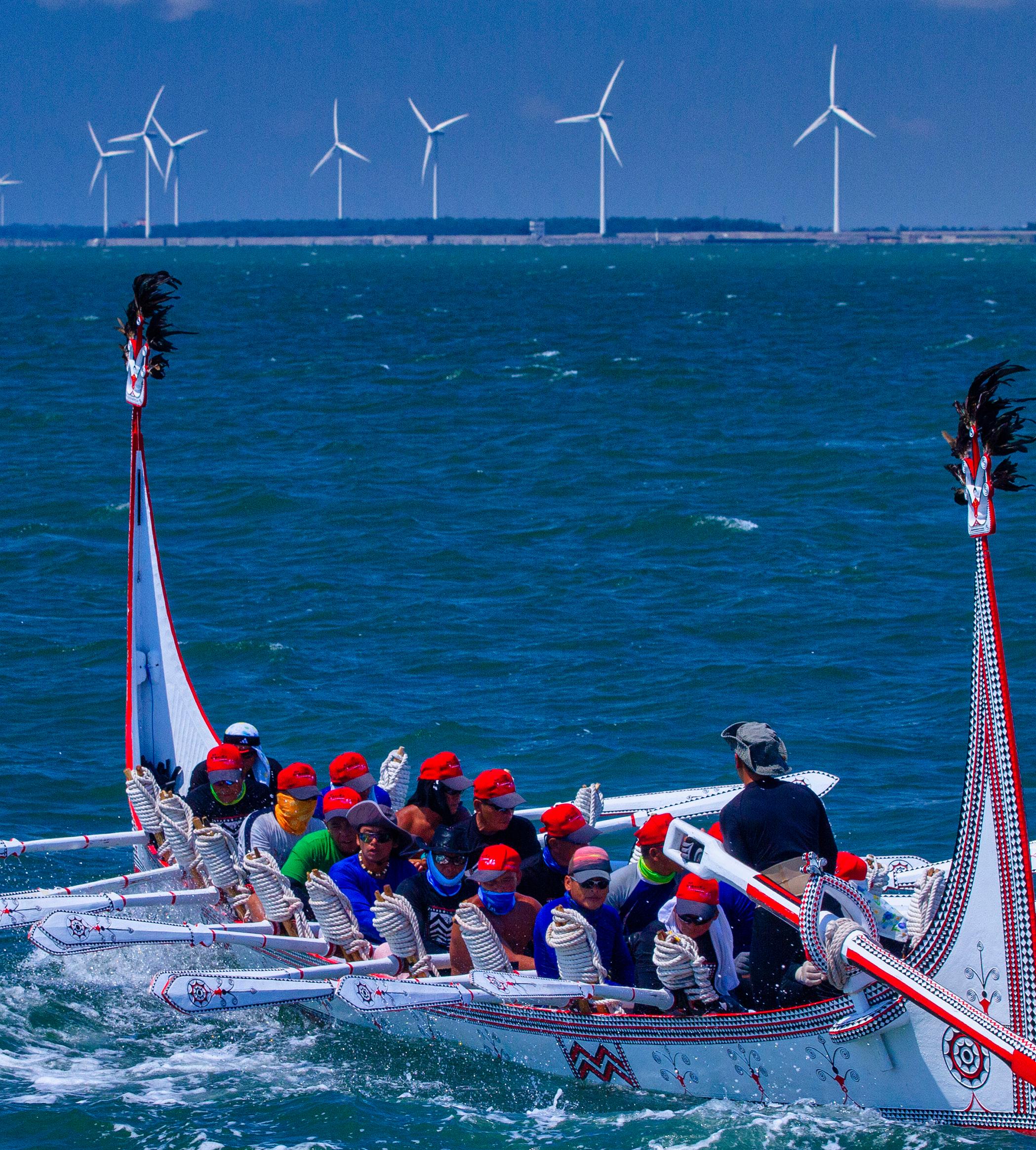

WORK BETTER INNOVATIONS POLICY SERIES POLICY BRIEF NO. 3 / 2024 APRIL 2024
Author
Work Better Innovations, “Sustainability in Action: Strategies for Taiwanese Enterprises in a Changing Climate,” April 2024, https://www. wbi.org.uk/publications/policybrief-3-2024/
Acknowledgements
We are grateful to Kwang-Yin Liu and Professor Yu-Fan Chiu for helpful reviews. We further thank Nicholas Haggerty and Wan-Hsiang Hsu for their careful edits and 66 Fu for layout.
© Work Better Innovations (WBI) All Rights Reserved.
Work Better Innovations (WBI) allows the free reproduction of excerpts from this publication for educational and advocacy purposes, provided full and proper acknowledgement and citation are given.
You must ask and receive permission from Work Better Innovations (WBI) for the reproduction and translation of this publication. A full-text PDF of this policy brief is available to download from wbi.org.uk/publications
Work Better Innovations
Innovation Space, Halpern House 1-2 Hampshire Terrace, Portsmouth PO1 2QF England
T : +44 7984 222216
hello@wbi.org.uk



@workbetterinnov

Work Better Innovations (WBI) is a social enterprise on a mission to support an inclusive and sustainable economy. We work innovatively on projects for business and human rights and have strong subject matter expertise in international law and standards.
We are the proud recipient of an Innovation Award for Community Innovation in Portsmouth, UK. Our community service is aimed at building a more inclusive and sustainable economy, from the ground up.
The Taiwan Project on Business and Human Rights is a special project between Work Better Innovations and the School of Law, National Yang Ming Chiao Tung University. The project’s goals are to provide accurate and authoritative research on business and human rights and to educate young scholars, corporate leaders, and practitioners on responsible economic growth in Taiwan. In doing so, the Taiwan Project builds the capacity needed to support business enterprises in Taiwan on human rights and environmental due diligence.
www.wbi.org.uk

WBI.ORG.UK | 2
COVER PHOTO BY DANIEL M. SHIH BOAT CROSSING WIND TURBINES IN TAIWAN’S WEST COAST.

Introduction
The United Nations adopted the 2030 Agenda for Sustainable Development in 2015, which set 17 Sustainable Development Goals (SDGs) to have broad impact in global action to end poverty, protect the planet and ensure peace and prosperity.
These 17 SDGs are meant to be a roadmap for governments, enterprises, civil society groups and other actors to make strategic decisions, investments and actions to jointly “shift the world onto a sustainable and resilient path.”
More than half of the SDGs are focused on development progress that depend on and are affected by environmental sustainability. These include targets and indicators on clean water and sanitation, affordable clean energy, suitable employment and economic growth, sustainable cities and communities, climate action, and the protection of life below water and on land.
Unsustainable economic production and consumption habits have shifted long-term global temperature and weather patterns. Various stakeholders, from investors and corporate boards to workers and consumers, are increasingly demanding appropriate climate action from companies. The frequency of extreme weather
events has also driven companies to confront more operational risks, spurring the development of effective and substantive risk mitigation strategies.
Taiwan and Climate Change: Why does it matter?
Taiwan is the 21st largest economy in the world and can positively promote the implementation of the global SDG roadmap. Furthermore, the goals are also directly relevant to the survival of the island itself as a place where future generations can thrive. Negative impacts and increasing risks associated with climate change affecting Taiwan are predicated in the areas of:
• Agriculture and fishery;
• Rainfall and weather;
• Public health and infectious diseases;
• Coastal communities and livelihoods;
• Extreme heat in urban areas.
WBI.ORG.UK | 3
PHOTO BY DANIEL M. SHIH
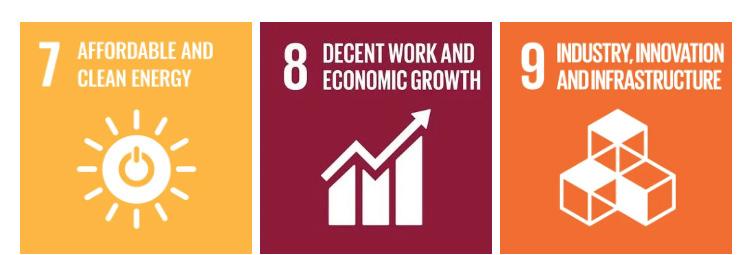
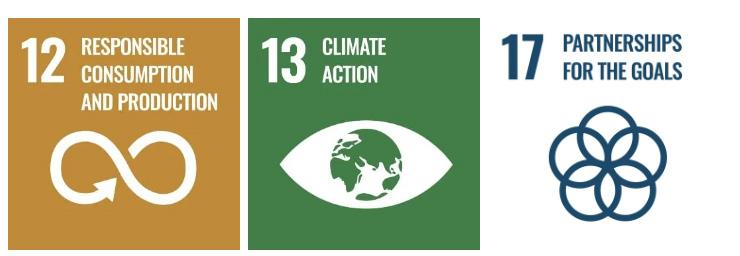

Sustainability and Taiwanese Businesses
Taiwan’s businesses are increasingly aware of the risks of climate change. In 2021, with the support of the British Office Taipei, CommonWealth Magazine conducted Taiwan’s first Business Climate Action Survey. The study found that 84 percent of the nearly 600 companies surveyed agreed that businesses play a key role in meeting Taiwan’s Net Zero carbon emission target by 2050.
There is a corporate and society-wide consensus on the positive impact that businesses can contribute to Net Zero. At the domestic regulatory level, Taiwan’s Financial Supervisory Commission (FSC) has started to promote corporate sustainability by establishing various mandatory information disclosure requirements in an effort to shift the domestic economy to a greener path.
In the last two decades, Taiwanese enterprises have had to face a steep learning curve on the issues of sustainability, spurred on by a vibrant domestic environmental movement. Serious corporate action, however, did not arrive until 2015 when negotiation parties to COP21 agreed to limit global warming to below 2°C above pre-industrial levels.
States Parties to the UN Framework Convention on Climate Change (UNFCCC) reached a consensus that this minimum level of emission reduction is considered crucial to prevent the most severe impacts of climate change for the planet.
In 2022, the European Union launched plans for the Carbon Border Adjustment Mechanism (CBAM). This regulation, set to take effect in 2026, will require EU importers to pay for the difference in carbon costs associated with goods produced outside the EU. The CBAM’s potential impacts on Taiwanese enterprises are similar to the proposed European Corporate Sustainability Due Diligence Directive.
Suppliers in Taiwan that seek to export to Member States of the EU, or provide goods and services to European business partners, will need to comply with the CBAM and other regulations. Taiwanese suppliers may need to use sustainable industrial production methods, adopt higher standards of human rights practices, or implement environmental due diligence, even if these European standards are higher than what is expected in Taiwan.
All businesses, regardless of their size, have a responsibility to respect human rights (see our Policy Brief No. 1/ 2024). The same is true for SMEs when it comes to sustainability and environmental protection. Nevertheless, SMEs face particular challenges. They may lack the resources to understand their legal responsibilities and implement policy commitments into relevant business activities.
WBI.ORG.UK | 4
Purpose and Methodology
This policy brief sets out key challenges facing Taiwanese enterprises on issues of sustainability and economy, with a focus on meeting Taiwan’s goal of reaching Net Zero by 2050. We will address the key climate change issues for Taiwanese enterprises under the three related themes of:
• Net Zero Emissions;
• Renewable Energy;
• Just Transition.

Similar to the context of business and human rights, SMEs need specialised assistance. This is especially relevant for Taiwan, where SMEs dominate the private economy landscape — about 99 percent of private enterprises in Taiwan are SMEs, defined by the government as enterprises whose paid-in capital is no more than NT$100 million (about US$3.1 million) or which hires fewer than 200 regular employees.
In this policy brief, we will also use case studies to highlight the sustainability challenges for businesses and set out some recommendations for Taiwanese enterprises.
Regulatory Developments and Opportunities
There are several reasons why businesses should engage with climate action. Globally, businesses that proactively engage with climate change are better positioned to navigate the evolving regulatory landscape while demonstrating their corporate commitment to sustainable development.
The Taiwanese government pledged in late 2022 to reduce the country’s carbon emissions by 24 percent in 2030, compared with 2005, and achieve Net Zero by 2050. In 2023, the government passed the Climate Change Response Act, setting out emission reduction measures to reach Net Zero by investing in renewable energy, based on the principle of a Just Transition.
PHOTO BY CHANG YI FENG ON UNSPLASH
WBI.ORG.UK | 5
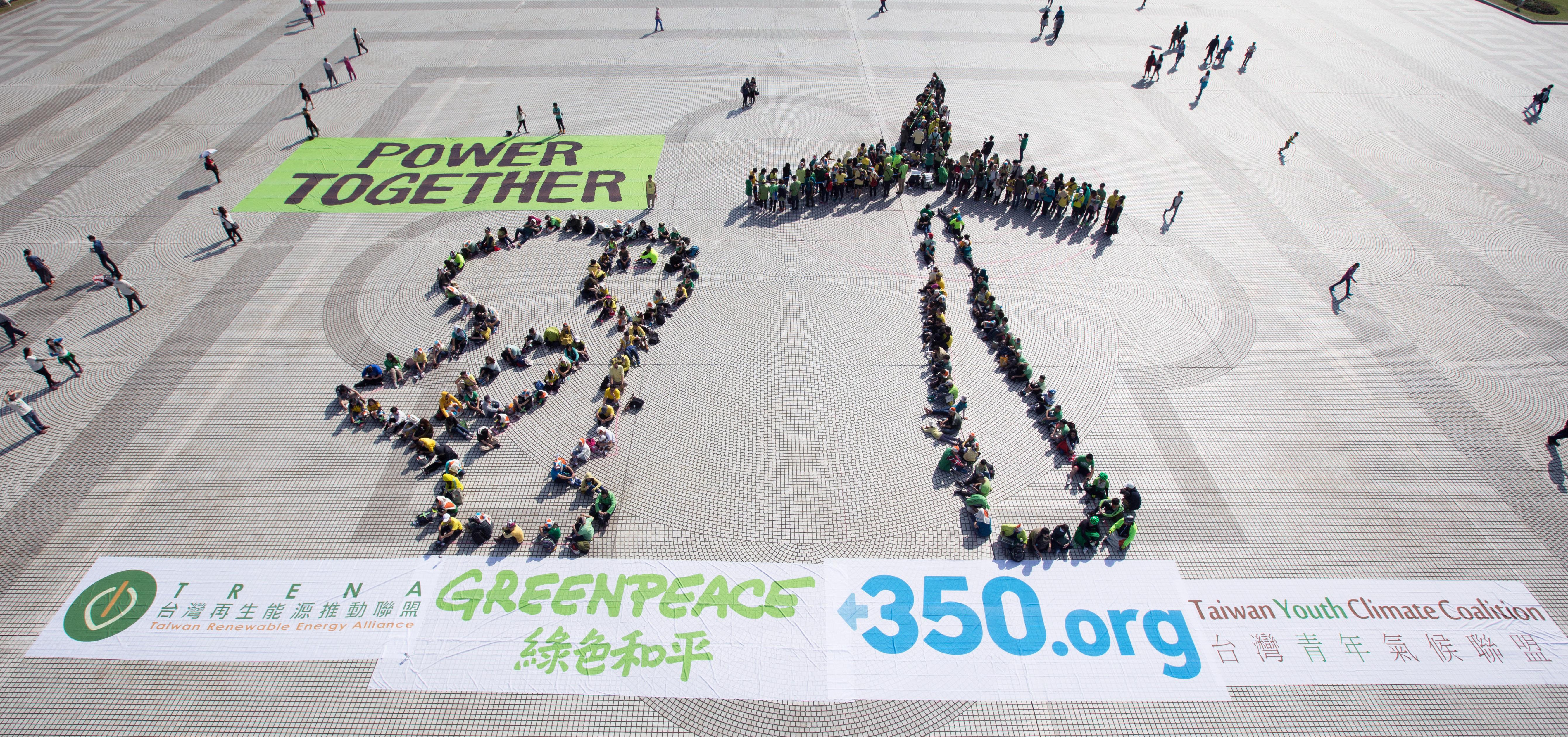
Topic 1: Net Zero Emission
In 2021, Taiwan’s annual carbon emissions were about 300 million metric tons, accounting for approximately 0.6 percent of global carbon emissions. Fifty percent of emissions came from industry, housing, commerce, and transportation. The other half of carbon emissions almost entirely came from the generation of electricity
Taiwan is not a negotiating party to the UNFCCC. Nonetheless, it has committed to the Paris Agreement of 2015 with the Net Zero goal to reduce all anthropogenic greenhouse gas (GHG) emissions and use carbon capture, forest carbon sinks and other methods to reduce emissions.
Taiwan’s 2023 Climate Change Response Act officially set its Net Zero emission target date to 2050. This domestic regulatory development, coupled with global trends in ESG (Environmental, Social and Governance) reporting, has brought in major Taiwanese enterprises’ commitment to drive climate action in their supply chain.
At present, enterprises that have specifically proposed carbon reduction targets are mostly the large, listed enterprises. With nearly 70 percent of its GDP coming from foreign trade, Taiwanese enterprises have important roles in global carbon reduction actions and initiatives. Nevertheless, the carbon action uptake by publicly listed companies remains modest.
As of August 2023, 118 out of the 1,791 listed companies in Taiwan have committed to Net Zero. Beyond the publicly listed companies, climate action also presents challenges for the SMEs that dominate the local economy.
Challenges of Climate Action for Taiwan’s SMEs
One survey conducted by CommonWealth Magazine in 2023 of the top-ranked 100 SMEs with the highest revenue growth rate over the past three years found:
• 60 percent have not completed Carbon Footprint Verification;
• 80 percent have not set carbon reduction targets (but of this 80 percent, 50 percent indicated that they will reduce carbon emissions); and
• 40 percent publish sustainability reports on a regular basis.
The SMEs surveyed noted the challenge of a shortage of professional talent to help them take climate action. Many enterprises reported that they feel the pressure to reduce carbon emissions but lack the concrete resources and talent to do so effectively.
WBI.ORG.UK | 6
PHOTO BY 350.ORG. FLICKR: CC BY-NC-SA 2.0 DEED

Topic 2: Renewable Energy
At COP28 in Dubai in 2023, parties agreed to triple the current capacity of renewable energy installations and double the rate of energy efficiency improvement by 2030. This was billed as the “beginning of the end” of the global dependence on fossil fuels. The main sources of renewable energy include solar and wind, as well as biomass, geothermal and ocean energy.
Businesses in Taiwan are urged by the government to invest in renewable energy. According to the Regulations for the Management of Setting up Renewable Energy Power Generation Equipment of Power Users above a Certain Contract Capacity (commonly known as the “Large Electricity User Provisions”), entities that consume 5,000 kilowatthours or more per month should either install renewable energy power generation equipment, purchase renewable energy electricity and certificates, or install energy storage equipment.
As of January 2023, data from Taiwan’s Ministry of Economic Affairs indicate that 43.6 percent of large electricity users have set up renewable energy power generation equipment, 52 percent have purchased renewable energy electricity and
certificates, and only 4.4 percent have set up energy storage equipment.
Other sources of renewable energy for Taiwan pose serious infrastructural challenges. Geothermal power generation requires long exploration time and heavy investment, limiting its current capacity. Other renewables, such as hydropower and ocean energy, are nascent and difficult to scale up due to challenges of investment.
Electricity prices in Taiwan are among the lowest in the world, and enterprises lack a strong economic incentive to pivot to renewable energy for their own consumption. SMEs face even greater challenges in transitioning to the use of renewable energy.
In 2023, 81.8 percent of Taiwan’s electricity was generated by fossil fuels, 9.9 percent by renewable energy, 7 percent by nuclear power and the rest by hydropower. At present, most Taiwanese enterprises build solar photovoltaics as a financial investment by selling the electricity generated by solar photovoltaics to Taipower, Taiwan’s stateowned electric power industry.1
WBI.ORG.UK | 7
PHOTO BY DANIEL M. SHIH
[台灣綠電市場指南:現況與市場解析],”
, 30
2023.
1 Jessie Cai, “Current Stays and Analysis of Renewable Energy Market in Taiwan
InfoLink Consulting
May
Green Financing and Community Engagement Renewable Energy
The need for green financing in Taiwan’s renewable energy sector, particularly in offshore wind power development, has become increasingly apparent as the island strives to transition to sustainable energy.
Taiwan’s geographical location as an island presents unique opportunities for harnessing offshore wind energy. This favourable location makes Taiwan a key player in the Asia-Pacific’s renewable energy landscape. The launch of Taiwan’s first offshore wind farm in 2019 marked a significant milestone, signalling its commitment to diversify its energy sources and reducing reliance on fossil fuels.
Despite early momentum, Taiwan’s offshore wind development has encountered challenges. One bottleneck is the local content requirements placed on the developers by the government. These requirements mandate that at least 60 percent of key components be supplied by Taiwanese vendors, intended to stimulate domestic industries and create local job opportunities.
The stringent regulations which can impede investment and development, coupled with resistance from coastal communities concerned about potential livelihood changes, have contributed to delays and increased costs in
offshore wind projects, as seen in other renewable wind projects abroad.
In light of these challenges, a holistic approach to financing is needed to support the growth of Taiwan’s renewable energy sector. Green financing mechanisms, such as subsidies, tax incentives, and investment incentives, can play a crucial role in mitigating the financial barriers associated with renewable energy development.
Meanwhile, it is imperative for developers to include local stakeholders, most notably the coastal fishing communities whose livelihood could be impacted by the development of offshore wind power. Communication and consultation need to be transparent and inclusive.
By incentivising investment in renewable energy and fostering collaboration between domestic and international stakeholders, green financing can help unlock the full potential of Taiwan’s offshore wind resources while promoting sustainable economic growth and environmental conservation. Taiwan’s Green Finance Plan 2.0 calls on financial institutions to grant credits and loans to green energy and sustainable development projects through incentives and support programs.

WBI.ORG.UK | 8
PHOTO BY DONG ON UNSPLASH
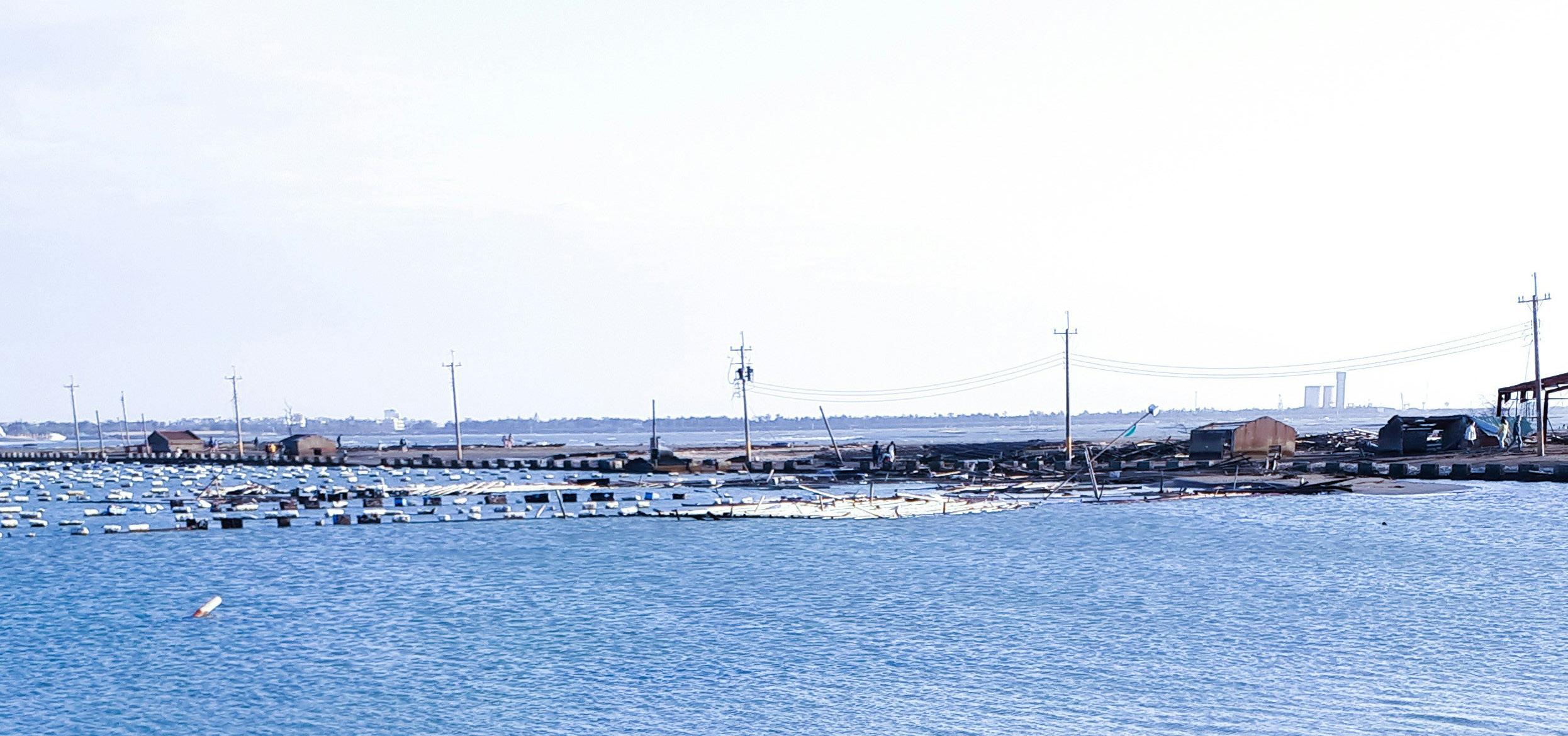
Topic 3: Just Transition
The transition to Net Zero necessitates a change from the existing socio-economic structure. It must also recognise that while climate change will affect everyone globally, effects of climate-related policy and action will have negative impacts that are not universally shared. It is critical that climate policy and action effectively integrate the views of individuals affected at every level.
“Just Transition” is an emerging term and concept for Taiwan. The Climate Climate Change Response Act, which took effect in February 2023, sets out a Just Transition commitment based on “the principle of consulting with all affected communities in transition to Net Zero, while respecting human rights and the dignity of labour, and assisting industries, regions, workers, consumers, and Indigenous peoples in a stable transition” (Article 3(11)).
The Act follows the budgetary commitment made by Taiwan’s National Development Council in 2022 to allocate NT$33.8 billion to key areas in Taiwan’s Just Transition, such as:
• retraining labour skills;
• building SME capacity for a low or zero carbon future; and
• accounting for the environmental sustainability, rights and interests of local communities.
The retraining of labour skills for a low-carbon future presents special challenges as well as opportunities for jobs and livelihoods of a sustainable society. But few enterprises, large or small, are adequately engaged in the livelihood impacts of Net Zero.
For instance, many large Taiwanese petrochemical enterprises that formed the industrial base of Taiwan’s rapid economic growth simply are not ready for Net Zero. When faced with a future in Taiwan of higher carbon emissions taxation, higher energy prices and large production capacity from competitors, Formosa Plastics, Formosa Polymer and Chi Mei have shifted production capacity abroad.
This offshoring has occurred without serious investments in the measures to generate the low or zero emission jobs and livelihoods needed for a greener future abroad. Domestically, challenges for SMEs for Net Zero are even greater, for their lack of resources can translate into not proactively considering and preparing their employees for a more sustainable future.
WBI.ORG.UK | 9
PHOTO BY SHEN SHEN ON UNSPLASH

Conclusions and Recommendations
The sustainability challenges for Taiwan are immense. There is growing awareness of the importance of a sustainable transformation for the Taiwanese economy, backed by the government’s pledge to reach Net Zero by 2050.
Enterprises need awareness, resources and incentives to transition to a low or zero carbon future. They increasingly face an international economic reality of extraterritorial regulations like the CBAM, which indicate that their ability to reduce carbon emissions will affect their future business prospects.
We set out three broad policy recommendations along the topics examined in this policy brief and emphasise the positive role that large enterprises have to contribute to this transition and help SMEs prepare for Net Zero:
Net Zero Emissions Just Transition
Identify risks and opportunities for SMEs, with larger enterprises leading carbon reduction.
Renewable Energy
Lower the cost of renewable energy development through green financing.
Plan and implement Net Zero transformation based on rights and dignity.
WBI.ORG.UK | 10
PHOTO BY WINSTON CHEN ON UNSPLASH
 PHOTO BY MORALIS TSAI ON UNSPLASH
PHOTO BY MORALIS TSAI ON UNSPLASH
Recommendation 1. Identify risks and opportunities for SMEs, with larger enterprises leading carbon reduction towards Net Zero.
Large enterprises have more resources and capacity to invest in carbon reduction than SMEs. Further, because larger enterprises are more likely to face international investors, they have stronger incentives to align their actions with international standards on global sustainability.
Nearly 90 percent of SMEs’ sales come from domestic sales in Taiwan, with little to no direct pressure from international buyers. Because SMEs are mainly domestic-facing, they can lack the incentives, knowledge and resources to commit to carbon reduction.
Similar to the issue of the corporate responsibility to respect human rights (see Work Better
Innovations Policy Brief No. 1 / 2024), the government and large-scale enterprises can support SMEs through providing specialised training, resources and financial support. These forms of support can help raise the awareness among Taiwan’s SMEs of the imperative of Net Zero and directly assist them in reducing their carbon emissions.
Taiwan’s Net Zero by 2050 goal cannot be met without the commitment of SMEs to sustainability. By taking practical actions to assist SMEs, led by larger enterprises, the government’s action plans on climate change have the potential to make demonstrable gains towards Net Zero.
Recommendation 2. Lower the cost of renewable energy development through green financing.
Reducing the dependence on fossil fuels to generate energy is a top priority. For green financing to facilitate Taiwan’s transition from its dependence on fossil fuels to renewables, there must be an adjustment of the power rate. A fair, equitable increase in the power rate can encourage investment in energy efficiency and in renewable energy infrastructure.
The leveraging of green financing for the transition to Net Zero was one of the key achievements
at COP26 in Glasgow, where private financial institutions and central banks committed trillions of U.S. dollars in investment to achieve global Net Zero.
Taiwan needs a similarly bold policy and investment commitment for Net Zero by fully implementing its Green Finance Action Plan 2.0. In addition, the wide adoption of renewables also will require meaningful and continuous multi-stakeholder discussions with affected communities and individuals.
WBI.ORG.UK | 11

Recommendation 3. Implement a green economy based on the human rights and dignity of all those affected by a transition to Net Zero.
Recommendation 3. Implement a green economy based on the human rights and dignity of all those affected by a transition to Net Zero.
A Just Transition must be founded on participatory and multi-stakeholder engagement. All stakeholders, especially affected communities, must be clearly informed of the impacts and risks. Industry, investors, and government officials must not embark from a starting point of power and information asymmetry.
This is seen in Taiwan’s development of wind and solar power in rural areas and offshore, where local populations may feel marginalised in the planning and building process. Professor Hsin-yi Lu at National Taiwan University, who has conducted field research on offshore renewables in Taiwan since 2014, has observed that disagreements with coastal communities perhaps would not have been so serious had the views of all local stakeholders been meaningfully incorporated at the initial stage of site selection. 2
“Just Transition” is a relatively new concept for Taiwan. But the commitment to meaningful consultation and respect for the human rights and dignity of all those affected must be a foundational pillar of an active social dialogue for a green transformation.
Challenges remain in Taiwan on the broader issue of a Just Transition, which encompasses addressing the rights of individuals facing the impacts of climate change and the rights of workers, communities, and consumers affected by the transition out of fossil fuels.
In January 2024, domestic environmental advocacy groups petitioned the Constitutional Court to push for more ambitious action on climate justice. Environmentalists argue that Taiwan’s Climate Change Response Act does not include short and medium-term national periodic regulatory goals for reducing carbon emissions. The petition underscores the imperative for Taiwan to scale up renewable energy infrastructure for it to reach Net Zero. Such explorations for beneficial solutions need to be based on a Just Transition.
The challenge looms over Taiwan’s future. How we choose to shape it through our economic activities of today, whether to implement sustainable development that can build our common prosperity, protect the planet’s biodiversity and safeguard it for future generations, matters — and especially so given Taiwan’s geography as a Pacific island, bound by the sea on all sides.
WBI.ORG.UK | 12 WBI.ORG.UK | 12
2 黃鈺婷, “Offshore Wind and Fisheries: Approach beyond Financial Compensation [離岸風電時代的漁業轉型 合理金錢補 償外還能怎麼做]”, Environmental Information Center, 18 November 2019.
PHOTO BY CLEMENT SOUCHET ON UNSPLASH
Innovation
T:




Work Better Innovations
Space, Halpern House 1-2
Hampshire Terrace, Portsmouth PO1 2QF England
+44 7984 222216
www.wbi.org.uk
hello@wbi.org.uk @workbetterinnov















 PHOTO BY MORALIS TSAI ON UNSPLASH
PHOTO BY MORALIS TSAI ON UNSPLASH
